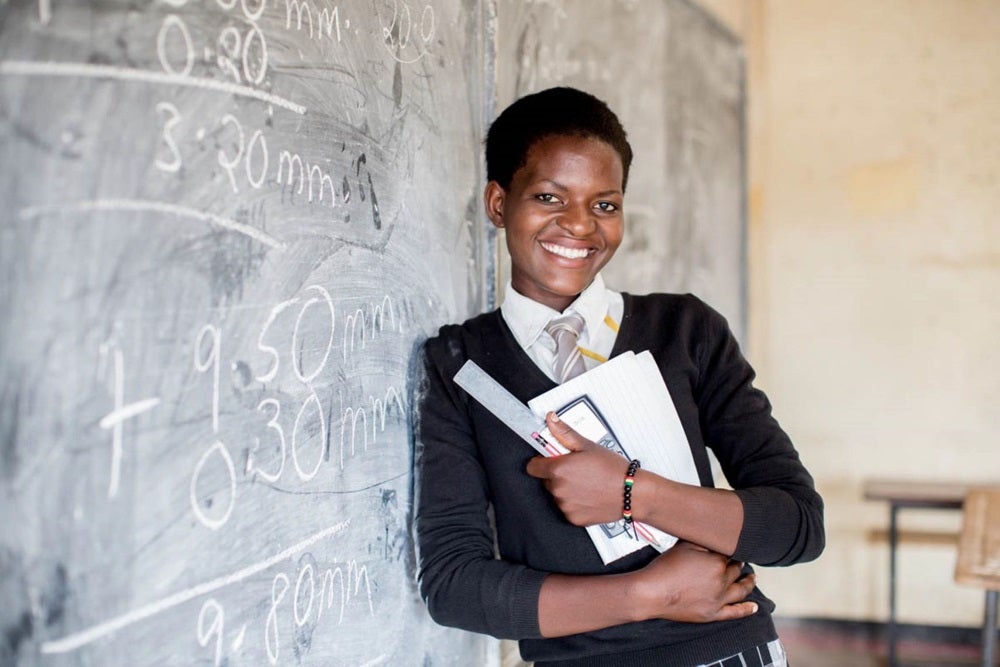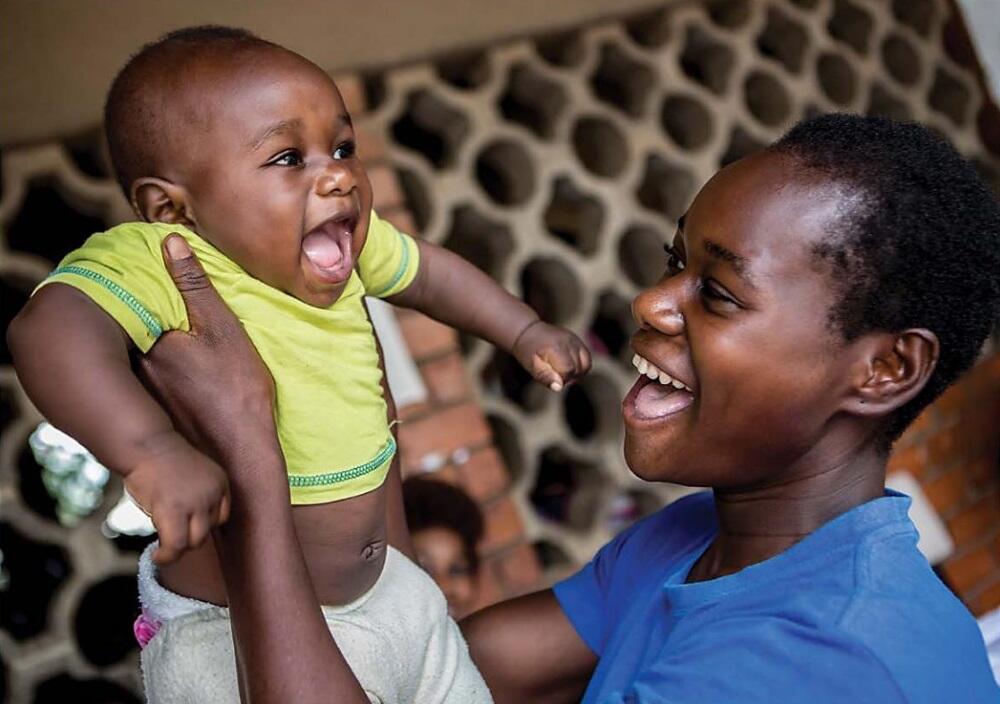“I got pregnant when I was 16 years old and in the 9th grade. My mother was very angry and disappointed in me – so much so that she decided to marry me off to the man who impregnated me,” said Mapalo*, 17.
But during her pregnancy, she suffered immense physical and emotional abuse at the hands of her husband.
I would spend the whole night outside, in the cold and sometimes in the rain.
“At night, my husband would drag me outside the house and lock the door,” she said. “I would spend the whole night outside, in the cold and sometimes in the rain. I could not even have a proper meal in that house.”
Mapalo’s situation did not improve after her baby was born.
“After I delivered, my husband continued abusing me, even in front of our newborn baby,” she said.
As a child bride, Mapalo’s experience of abuse by her husband was not unusual. Girls who are forced into marriage at an early age typically find themselves powerless in their relationship. They often endure early pregnancy, which is more likely to lead to complications during delivery and even death. They also frequently experience emotional, verbal, physical and economic abuse at the hands of their partner.
Providing safe spaces for vulnerable girls

But Mapalo was lucky, because help was at hand – in the form of a safe space mentor, who came across her at home while conducting door-to-door visits to identify and assist girls affected by child marriage.
“With her help, I finally moved out of [home and] my abusive marriage, together with my baby,” she said.
In Zambia, child marriage rates are among the highest in the world, although on the decline. In 2014, 31 per cent of women aged 20–24 years reported being married before they were 18 years old, compared to 42 per cent in 2007 (according to a UNFPA study in 2015). (View data map.)
With her help, I finally moved out of [home and] my abusive marriage, together with my baby.
Safe spaces protect and empower girls
In many developing countries, providing safe spaces for girls has emerged as a key strategy for the protection and empowerment of adolescent girls.
More than 550 safe spaces have been established through the UK aid and UNFPA-supported Programme to End Child Marriage in Zambia. Implemented by the Young Women’s Christian Association (YWCA), the safe spaces are aimed at equipping girls affected by and at risk of child marriage with life skills that empower them to resist the pressure to become child brides.
Mapalo numbers among thousands of adolescent girls who have benefitted from safe spaces in her country. While she continues to participate in the weekly safe space sessions, she has dreamed of returning to school to finish her studies.
Thanks to the First Lady of the Republic of Zambia, Esther Lungu, this dream is to become a reality: Mapalo has been offered a full scholarship to complete her education, following a high-level meeting with spouses of traditional leaders on child marriage, in Lusaka in 2017.
Today, she is full of smiles – and plans for her future.
My baby is now eight months old and I want him to grow up into a loving, responsible and caring man.
“When I finish school, I want to become a soldier so that I can help end violence and create peace in the world,” she said. “My baby is now eight months old and I want him to grow up into a loving, responsible and caring man.”
Partnering to address youth challenges
To strengthen the national multi-sectoral response to child marriage, the Government of the Republic of Zambia, with support from UNFPA, UNICEF, UKAID through the Department for International Development (DFID), the Government of Canada and other partners, developed a National Strategy on Ending Child Marriage (2016 to 2021).
UNFPA in Zambia works with young people, government and partners to deliver comprehensive policies and programmes that address key issues and challenges faced by adolescents and youth, to ensure that young people are able to reach their potential as they transition from childhood to adulthood.
Key challenges for young people include high child marriage rates (31 per cent), high teenage pregnancy rates (29 per cent), low school retention (about 66 per cent of young people drop out of school by the 12th grade), and high HIV prevalence (21,000 new HIV infections among young people aged 15-24 years).
UNFPA's youth programmes advance young people’s health and development, with a particular focus on comprehensive sexuality education, child marriage, youth leadership, youth-friendly services and advocacy.
– Precious Zandonda
* Name changed to protect identity.



